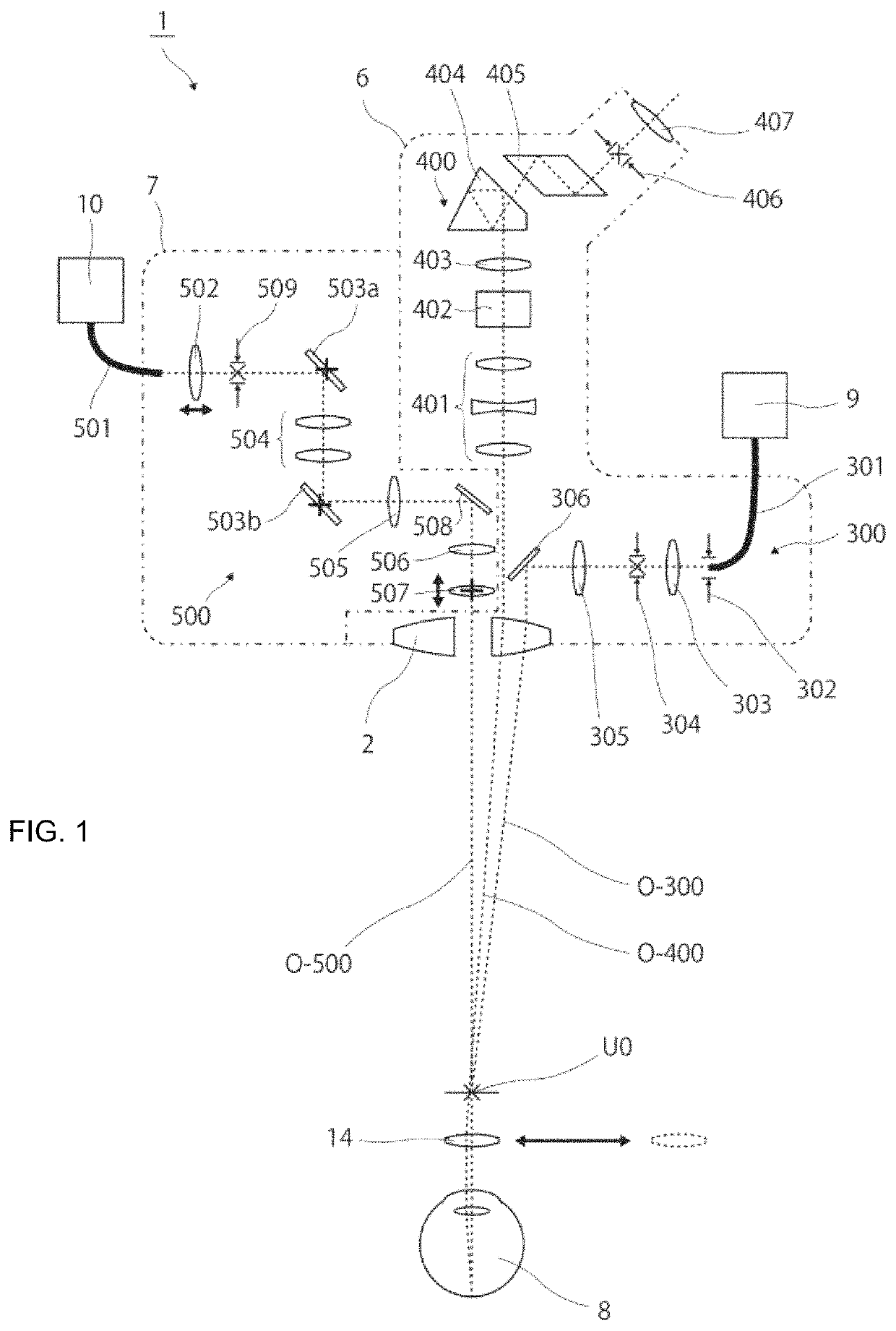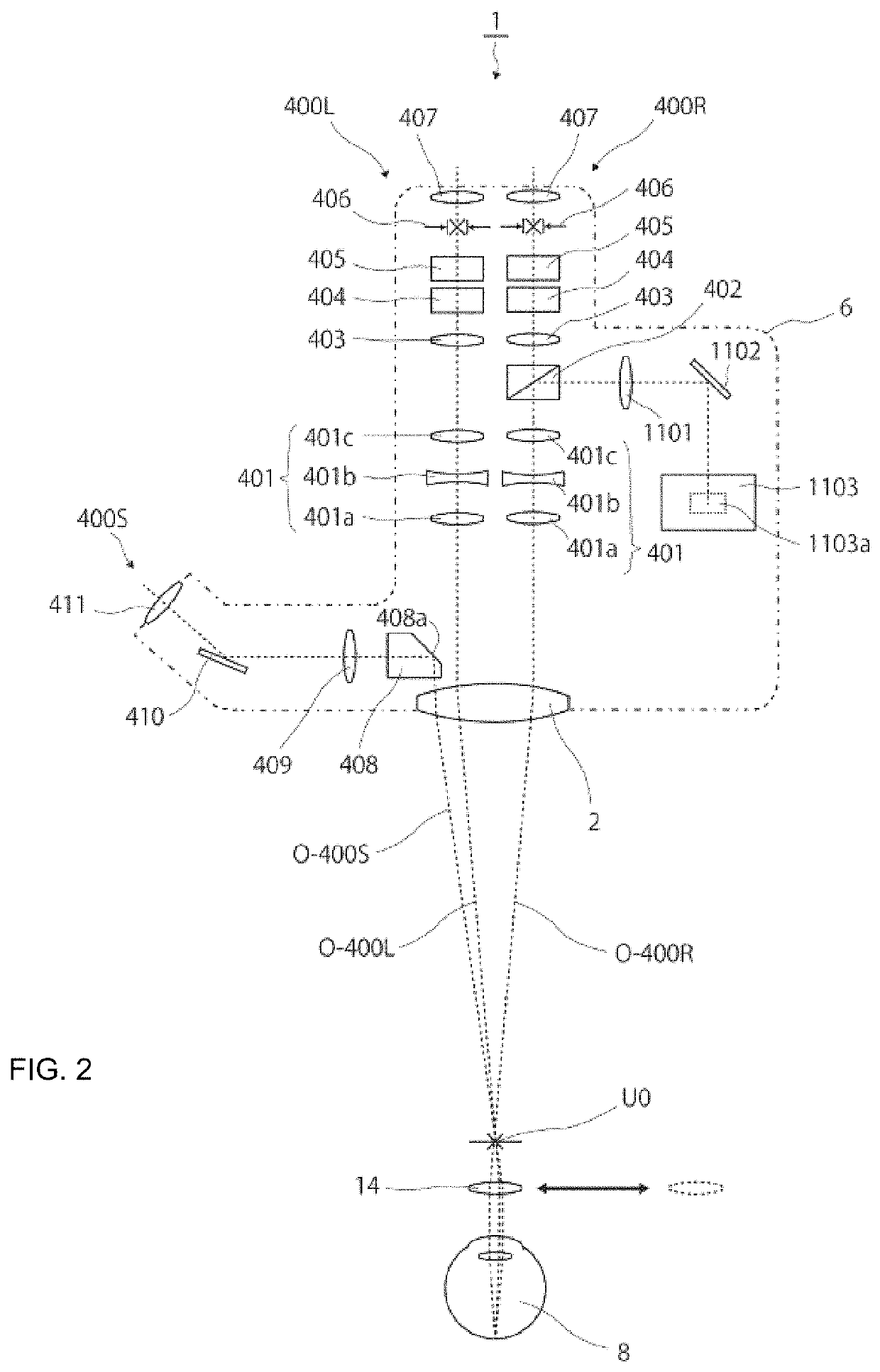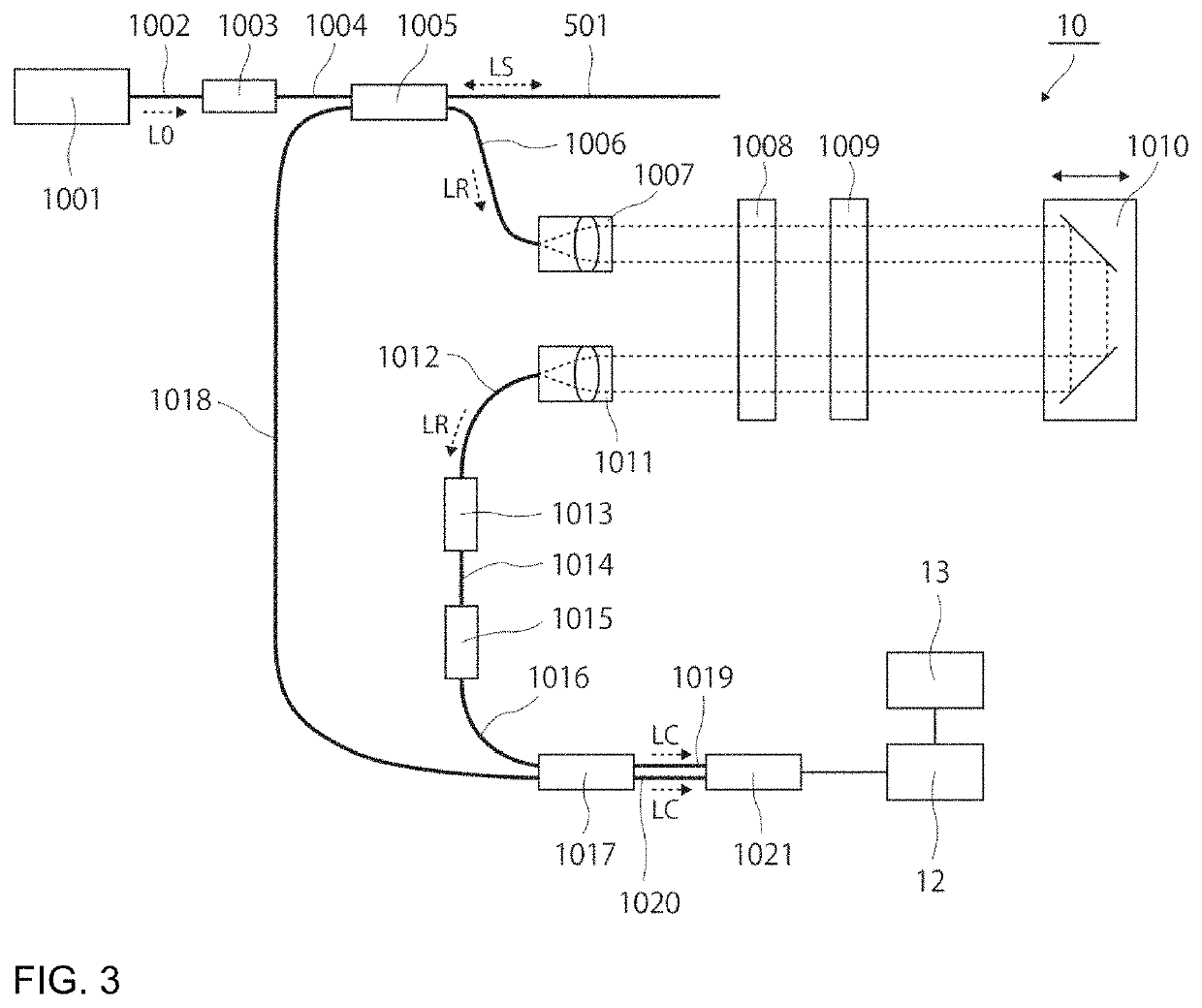Ophthalmic microscope and functionality enhancement unit
a technology of functional enhancement and optical design, applied in the field of ophthalmologic microscopes, can solve the problems of complex optical design of ophthalmologic microscopes, and achieve the effect of facilitating the addition of functions of oct to ophthalmologic microscopes, and increasing the degree of freedom in optical design
- Summary
- Abstract
- Description
- Claims
- Application Information
AI Technical Summary
Benefits of technology
Problems solved by technology
Method used
Image
Examples
first embodiment
1-2. First Embodiment
[0110]Hereinafter, examples of the embodiments of the present invention will be fully described in reference to drawings. FIGS. 1-4 schematically illustrate the first embodiment which is an example of the ophthalmologic microscope of the present invention. FIG. 1 is a schematic diagram from a side view of the configuration of an optical system for the ophthalmologic microscope of the first embodiment, and FIG. 2 is a schematic diagram from a front view. Also, FIG. 3 schematically illustrates the optical configuration of an OCT unit, and FIG. 4 schematically illustrates a shape of objective lens.
[0111]As shown in FIG. 1, the optical system of the ophthalmologic microscope 1 comprises an objective lens 2, an illuminating optical system 300, an observation optical system 400, and an OCT optical system 500.
[0112]The objective lens 2, the illuminating optical system 300, and the observation optical system 400 are accommodated in an ophthalmologic microscope body 6. O...
second embodiment
1-4. Second Embodiment
[0187]Preferably, the OCT optical system can be additionally incorporated as an extension function into the ophthalmologic microscope comprising an observation optical system and an illuminating optical system. To additionally incorporate in this way, the inventors found that it can be compactly incorporated by bending the light path of the OCT optical system twice to adapt to the original function of the microscope.
[0188]That is, in the ophthalmologic microscope of the present invention, it is preferable that the OCT optical system comprises:
[0189]a first optical member that guides a light from an OCT light source to a first optical axis direction;
[0190]a first reflecting member that guides the light guided to the first optical axis direction to a second optical axis direction substantially perpendicular to the first optical axis direction;
[0191]a second optical member that relays the light guided to the second optical axis direction; and
[0192]a second reflect...
third embodiment
1-5. Third Embodiment
[0224]A shape of an objective lens used in the third embodiment which is other example of the ophthalmologic microscope of the present invention is shown in FIG. 11. FIG. 11 (A) illustrates an objective lens seen from the optical axis direction and FIG. 11 (B) is a cross-sectional view in the plane including a line AA′ of FIG. 11 (A).
[0225]As shown in FIG. 11 (A), the objective lens 2 used in the third embodiment has a shape of circular lens with a partial cutout. And, the light path of the OCT optical system P-500 passes through that cutout portion.
[0226]Also, as shown in FIG. 11 (B), the sectional shape of the objective lens 2 has a partial shape of convex lens which has been partially cut away.
PUM
 Login to View More
Login to View More Abstract
Description
Claims
Application Information
 Login to View More
Login to View More - R&D
- Intellectual Property
- Life Sciences
- Materials
- Tech Scout
- Unparalleled Data Quality
- Higher Quality Content
- 60% Fewer Hallucinations
Browse by: Latest US Patents, China's latest patents, Technical Efficacy Thesaurus, Application Domain, Technology Topic, Popular Technical Reports.
© 2025 PatSnap. All rights reserved.Legal|Privacy policy|Modern Slavery Act Transparency Statement|Sitemap|About US| Contact US: help@patsnap.com



